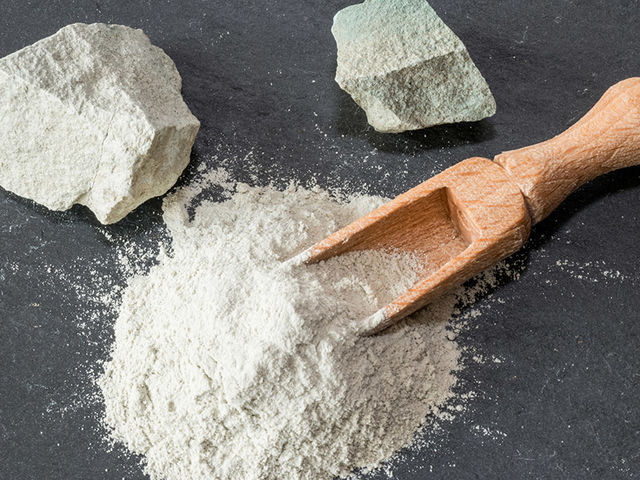Magnesium is an essential mineral that plays a crucial role in the human body, impacting everything from energy production to muscle function. Despite its importance, magnesium often doesn’t get the attention it deserves. This article delves into the significant relationship between magnesium and muscle function, exploring how this mineral influences muscle health, performance, and recovery.
The Role of Magnesium in the Body
Magnesium is the fourth most abundant mineral in the human body and is involved in over 300 biochemical reactions. It is vital for processes such as protein synthesis, blood glucose control, and nerve function. However, its role in muscle function is particularly noteworthy.
Muscles require magnesium to perform properly. This mineral is essential for muscle contraction and relaxation, and it plays a role in energy metabolism within muscle cells. A deficiency in magnesium can lead to muscle weakness, cramps, and spasms, which can significantly impact physical performance and overall well-being.
Magnesium and Muscle Contraction
To understand the connection between magnesium and muscle function, it’s important to first understand how muscles contract. Muscle contraction is a complex process that involves the interaction of calcium and magnesium ions. When a muscle receives a signal from the nervous system to contract, calcium ions are released inside the muscle cells. These ions bind to proteins in the muscle fibers, triggering a series of events that result in contraction.
Magnesium’s role in this process is to regulate the movement of calcium. It acts as a natural calcium blocker, preventing excessive calcium from entering the muscle cells. Without adequate magnesium, calcium can accumulate in the muscle cells, leading to prolonged contraction and muscle stiffness. This is why magnesium is often referred to as the “relaxation mineral”—it helps muscles relax after they contract.
Magnesium’s Role in Muscle Relaxation
Just as magnesium is critical for muscle contraction, it is equally important for muscle relaxation. After a muscle contracts, magnesium helps push the calcium out of the muscle cells, allowing the muscle to relax. This process is essential for preventing muscle cramps and spasms, which can occur when muscles are unable to relax properly.
Moreover, magnesium helps in maintaining the electrical balance within muscle cells. This balance is crucial for preventing involuntary muscle contractions and spasms. Athletes and individuals who engage in regular physical activity often emphasize the importance of magnesium for its ability to promote muscle relaxation and prevent muscle fatigue.
Magnesium and Energy Production in Muscles
Muscles need energy to contract, and magnesium plays a key role in energy production. The primary source of energy for muscle contraction is adenosine triphosphate (ATP), a molecule that stores and transfers energy within cells. However, ATP needs to be bound to a magnesium ion to be biologically active. This means that without adequate magnesium, ATP cannot be utilized effectively by muscle cells, leading to reduced energy production and impaired muscle function.
This is particularly important during exercise or any physically demanding activity. Magnesium helps ensure that muscle cells have a steady supply of energy, which is essential for sustained performance. A deficiency in magnesium can lead to early fatigue, decreased endurance, and a greater risk of muscle injury.
Magnesium and Muscle Recovery
Recovery is a critical aspect of maintaining healthy muscle function, especially for athletes and individuals who engage in strenuous physical activity. Magnesium plays a vital role in the recovery process by aiding in muscle relaxation, reducing inflammation, and supporting the repair of muscle tissue.
During exercise, muscles experience micro-tears and stress, which can lead to inflammation and soreness. Magnesium has anti-inflammatory properties that help reduce this inflammation, promoting faster recovery and reducing muscle soreness. Additionally, magnesium supports protein synthesis, which is essential for the repair and growth of muscle tissue after exercise.
Proper magnesium levels also help prevent muscle cramps and spasms that can occur during the recovery phase. By ensuring that muscles can relax fully, magnesium helps prevent the tightness and discomfort that can hinder recovery and lead to muscle imbalances.

Signs of Magnesium Deficiency in Muscles
Given the important role that magnesium plays in muscle function, it’s important to be aware of the signs of magnesium deficiency. Common symptoms include:
- Muscle cramps and spasms: These are often the first signs of a magnesium deficiency. The inability of muscles to relax properly can lead to painful cramps and involuntary contractions.
- Muscle weakness: Without adequate magnesium, muscles may not have the energy they need to function effectively, leading to weakness and fatigue.
- Twitches and tremors: Magnesium helps regulate the electrical activity in muscles, and a deficiency can lead to uncontrolled twitches and tremors.
- Fatigue: A lack of magnesium can impair energy production in muscle cells, leading to overall fatigue and decreased physical performance.
- Stiffness and tightness: Muscles may feel stiff and tight due to prolonged contraction caused by insufficient magnesium.
If you experience any of these symptoms, it may be worth considering whether your magnesium intake is adequate. Addressing magnesium deficiency can have a significant impact on muscle function and overall well-being. Visit their page if you need more information or have any questions about the best magnesium supplement uk.
Sources of Magnesium for Muscle Health
Ensuring adequate magnesium intake is essential for maintaining optimal muscle function. Fortunately, magnesium is found in a variety of foods, making it relatively easy to incorporate into your diet. Some of the best dietary sources of magnesium include:
- Leafy green vegetables: Spinach, kale, and Swiss chard are excellent sources of magnesium.
- Nuts and seeds: Almonds, cashews, pumpkin seeds, and sunflower seeds are all rich in magnesium.
- Whole grains: Brown rice, quinoa, and oats are good sources of magnesium.
- Legumes: Beans, lentils, and chickpeas provide a good amount of magnesium.
- Fish: Fatty fish such as salmon and mackerel are also good sources of magnesium.
- Fruits: Bananas, avocados, and figs contain magnesium.
Incorporating these foods into your diet can help ensure that your muscles receive the magnesium they need to function properly.
Conclusion
Magnesium plays a vital role in muscle function, influencing everything from contraction and relaxation to energy production and recovery. Without adequate magnesium, muscles can become weak, fatigued, and prone to cramps and spasms. By ensuring that you get enough magnesium in your diet, you can support healthy muscle function, enhance physical performance, and promote faster recovery after exercise. Whether you’re an athlete, a fitness enthusiast, or someone looking to maintain overall muscle health, magnesium is a mineral that deserves your attention.

